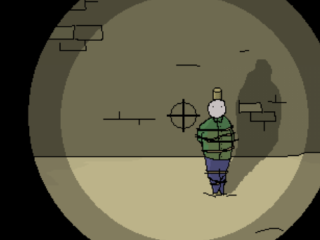In Episode 5, I discussed the difference between short form and long form video games and interactive fiction. I compared certain games to short stories and novels, but I didn’t discuss the third well-known form of artistic writing: poetry. A poem is a work of language where the properties of the language itself — rhythm, sound, and imagery — are as important (or more important) than the words’ literal meaning and the narrative content of the work.
When I think of “poetic” games, where the form is as important as the content, I think of Tetris. Tetris is a game with a very simple narrative: pieces are falling, and must be organized or else the game ends. The story isn’t very important. What stands out about Tetris is its feeling and gameplay: the imagery and form of the game. The excitement of the race against time, the satisfaction of clearing a row, and the imagery of building a wall and tearing one down, where any hole is a flaw.
“Phyta,” by Abraham Parangi, is a poetic game.


